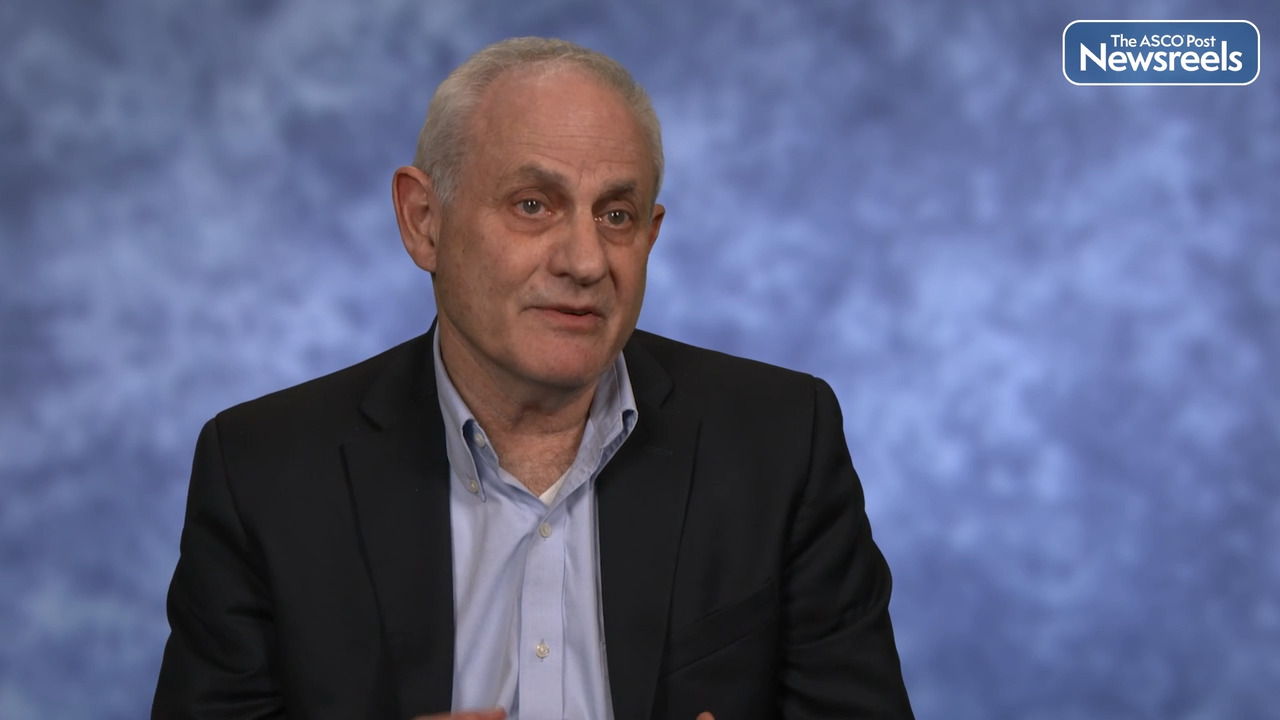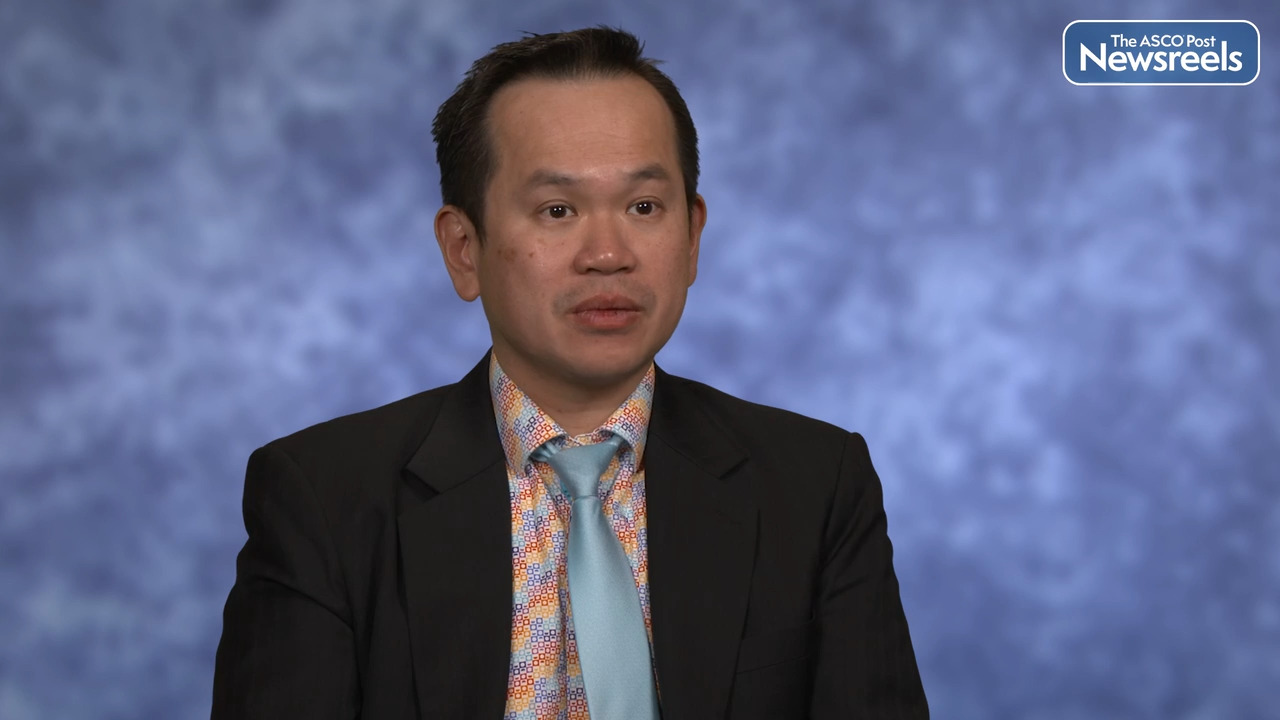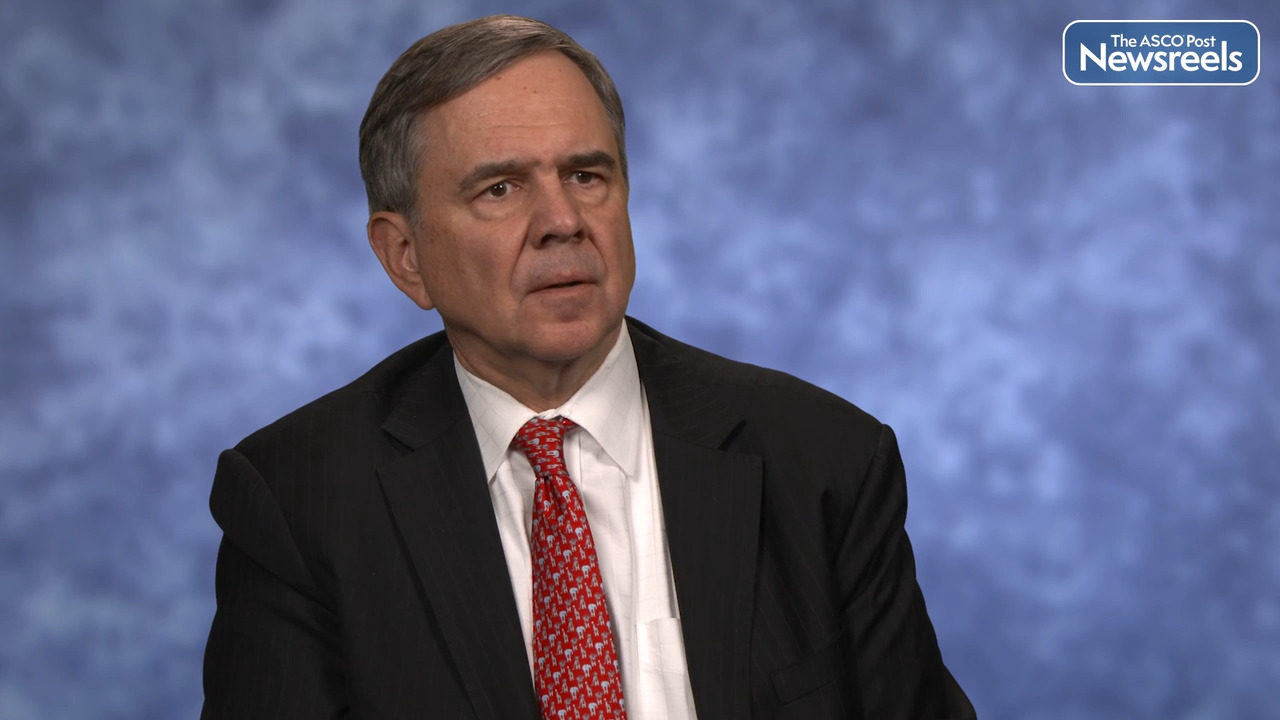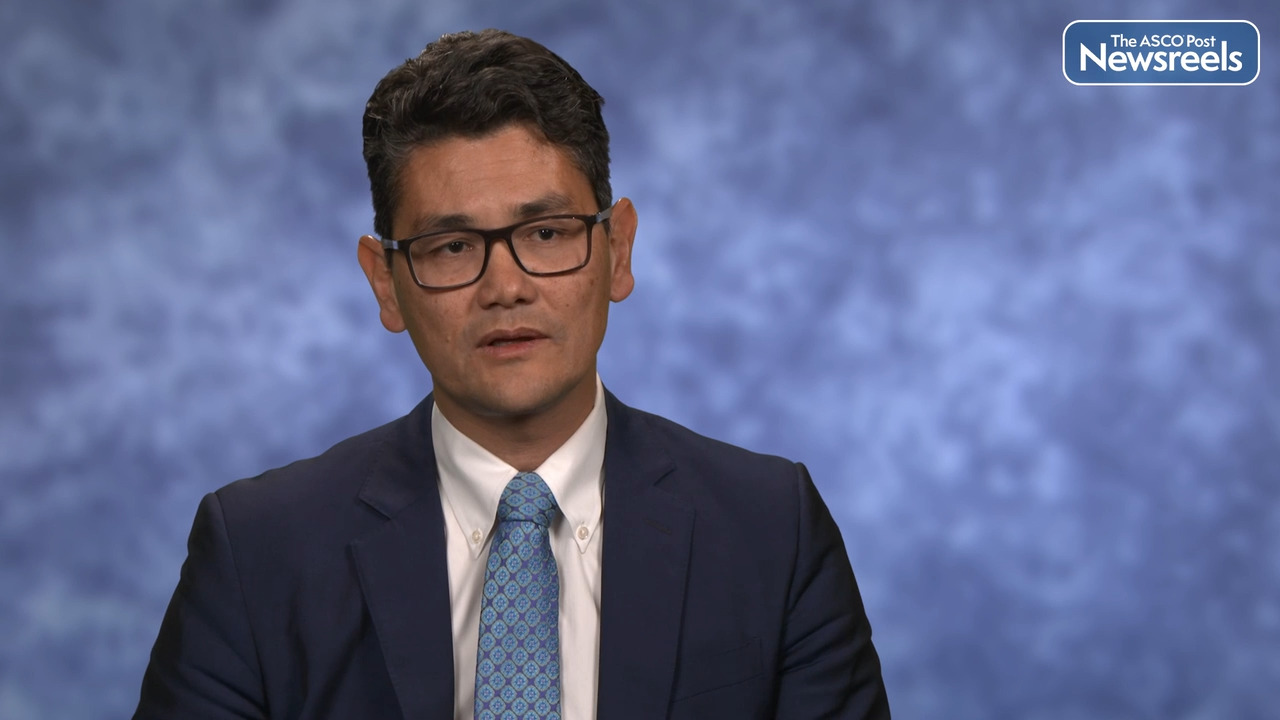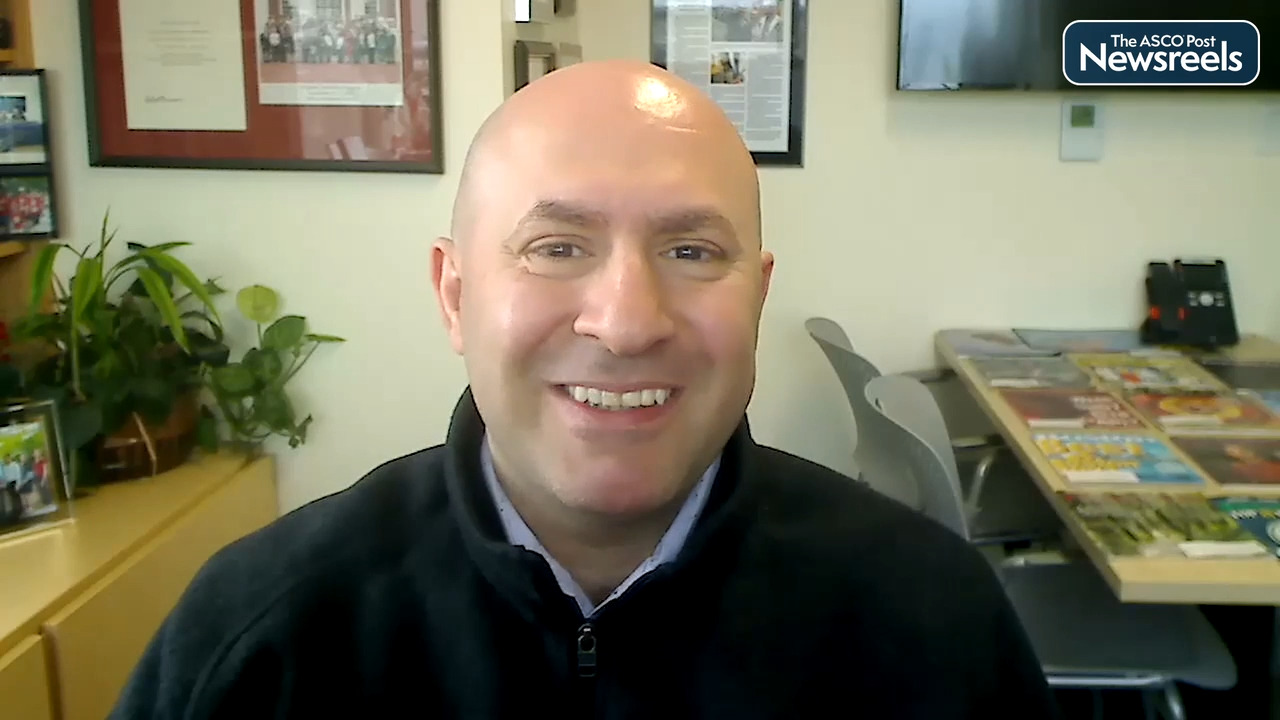Transcript
Disclaimer: This video transcript has not been proofread or edited and may contain errors.
Sumanta K. Pal, MD:
One of the things I'm super passionate about is mentorship, and I've got some really fantastic residents and fellows and students presenting their work at ASCO GU 2023. One is Hedyeh Ebrahimi, who's a terrific post-doctoral fellow joining our group who hails from Iran. She's presenting some work that pertains to nutritional supplements in our kidney cancer patients and their utilization. Daniela Castro, a terrific post-graduate in my group, applying to medical school soon, is presenting some work that pertains to a clinical trial eligibility really across the spectrum of GU malignancies, including prostate, kidney, and bladder cancer. I think you're going to find their work incredibly interesting.
Daniela Castro:
The primary objective of our study was to characterize eligibility criteria in contemporary trials, assessing systemic therapies in patients with advanced kidney, prostate, and urothelial cancer based on ASCO and the Friends of Cancer Research recommendations.
Beginning in 2017, ASCO and Friends of Cancer Research established an initiative to carefully examine eligibility criteria and found that they were largely restrictive and ultimately led to limiting patient accrual, access to investigational treatments, as well as ultimately limiting the generalizability of study results. So our study looked specifically at these three disease settings to assess the content of these eligibility criteria.
We identified eligible trials using the ClinicalTrials.gov database and specifically looked at patients with advanced disease receiving systemic therapies, rather than those on localized treatments or those evaluating prognostic tools in phase one to three trials.
We then stratified the trials we identified into three groups as exclusion, conditional inclusion, or not reported according to the data we had accessible on ClinicalTrials.gov. Ultimately, we found that the vast majority of trials in the RCC space incorporated very exclusionary criteria, specifically with reference to HIV status, hepatitis status, brain metastases, and concurrent malignancies. Similarly, we saw that urothelial cancer studies incorporated these same exclusionary criteria in greater proportions compared to other.
In prostate cancer trials, we found that patients with brain metastases or had HIV positivity, hepatitis positivity, as well as concurrent malignancies were largely reported as exclusion. However, across all three disease spaces, we found that concurrent malignancies were the criteria in which trials tended to be most inclusive toward patients that had either a secondary malignancy that had previously been treated or lower stage disease.
Ultimately, we found that eligibility criteria in these three diseases incorporated restrictive eligibility criteria, and there is a need to update these criteria to reflect the current landscape so that we can include more patients in these trials that can benefit and ultimately serve to reflect the real world population better.
Hedyeh Ebrahimi, MD, MPH:
Mounting data suggests that dietary modification and supplement use may modulate immunotherapy outcomes in cancer treatment. A previous study of our team published in Nature Medicine showed that CBM588, a supplemental, live, [inaudible 00:04:17] bacterial resulted in longer progression-free survival in patients receiving ipilimumab plus nivolumab for metastatic renal cell carcinoma.
However, we see that supplement use discussion with patients at clinic may sometimes be dismissed by practitioner. Therefore, we aim to quantify use of these measures among patients with MRCC who were under active combination therapy. To do so, a survey was conducted by Kidney Cancer Research Alliance, KCQ, and non-profit patients advocacy group using the international mailing list in 2022. In our survey, multiple questions were directed to use of supplement and dietary modification.
In our study, we only included patients who were under active combination therapy. Who were 289 out of 1,062 respondents to the survey, we saw that ipilimumab plus nivolumab was the most common first line treatment among our respondent.
Thirty-five percent of our respondents say that they followed new dietary regimen following their cancer treatments. The most common new regimen were Mediterranean and ketogenic diets. Half of the patients reported that they start using supplements secondary to their cancer diagnosis. CBD oil or marijuana, probiotics, and vitamin C were the most common used supplements among our respondent.
We saw that 35% of our patients said that they were skeptical toward alternative treatments. However, 10% said that they think alternative treatments may help shrink the cancer instead of standard approved treatments.
Additionally, only 83% of patients said that they consistently discussed supplement use with their practitioner. As we saw, a considerable proportion of patients use supplements and follow new dietary regimen following cancer treatment as an adjunct to their standard treatment. However, we know that supplement use may modulate cancer treatment outcomes.
Additionally, interventions such as the probiotic use or ketogenic diets are subject of prospective studies in MRCC. Therefore, we believe that practitioners should discuss more carefully supplement use and dietary regimen with their patients at clinic and clinical trial candidate to prevent such confounders.
